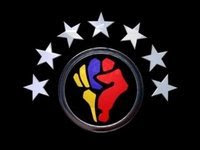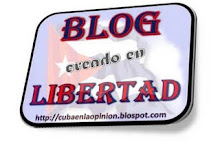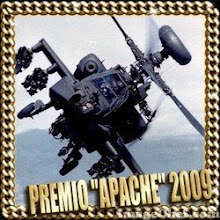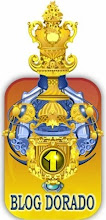
People against the return of ousted Honduras President Manuel Zelaya participate in a rally at the central park in Tegucigalpa, Tuesday, June 30, 2009.
El golpe militar ocurrido en Honduras el pasado 28 de junio y que llevó al exilio al presidente de ese país centroamericano, Manuel Zelaya, es “extrañamente democrático”, afirma hoy en un editorial el diario The Wall Street Journal.
“Para lo que suelen ser los golpes militares, el del pasado fin de semana en Honduras fue extrañamente democrático”, dice el artículo del periódico neoyorquino, que añade que “el Ejército no depuso al presidente Manuel Zelaya por sí solo, sino siguiendo una orden del Tribunal Supremo (de Honduras)”.
Para el diario, cobra relevancia que los militares, además, entregaran “rápidamente el poder al presidente del Parlamento, un hombre del mismo partido de Zelaya”, y que “las autoridades legislativas y judiciales permanecieran intactas” tras la acción militar.
Manuel Zelaya, quien ayer asistió en EE.UU. a reuniones de la ONU y de la OEA, se vio forzado al exilio después de que el pasado domingo el Ejército lo sacara de su casa por la fuerza y lo trasladara a Costa Rica, tras enfrentarse durante varios días con otros poderes del Estado.
El depuesto mandatario insistía en llevar a cabo una consulta popular con vistas a una reforma constitucional que, según sus detractores, le abriría el camino a la reelección, pese a que el Parlamento y el Tribunal Supremo la habían declarado ilegal.
“Mencionamos esos detalles porque se están pasando por alto mientras el mundo, incluido el presidente de Estados Unidos, Barack Obama, denuncia lo que ocurre en la pequeña Honduras de una manera en la que nunca lo ha hecho, por ejemplo, con Irán”, indica el diario.
The Wall Street Journal, que recuerda que Obama se ha posicionado en este asunto “junto a Naciones Unidas, Fidel Castro, Hugo Chávez y otros demócratas modélicos”, asegura que lo ocurrido en Honduras debe leerse “en el contexto del ‘chavismo’ latinoamericano”.
También reconoce que hubiera sido “más inteligente no mandar a Zelaya al exilio al amanecer” y que la “ruta correcta era la de destituir a Zelaya y entonces detenerlo por violar la ley”.
“Pese a que su intención de celebrar un referéndum fue declarada ilegal, Zelaya persistió en sus intenciones e incluso lideró un asedio violento para distribuir papeletas importadas de Venezuela”, se señala en el artículo, que también repasa la trayectoria del venezolano Hugo Chávez desde que llegó al poder en 1998.
Chávez, según el diario, ha utilizado “desde entonces cada una de las herramientas del poder, legales e ilegales, para subvertir la democracia”, y ha exportado “su modelo” por la región.
El diario conservador neoyorquino dice que Chávez utilizó “dinero proveniente del petróleo venezolano para ayudar a que Zelaya ganara las elecciones hondureñas en 2005″ y Zelaya, por su parte, ha intentado utilizar “procedimientos ilegales para forzar al Congreso a que reforme la Constitución”.
“Esa intimidación populista ha funcionado en muchos puntos de la región y en Honduras están comprensiblemente asustados de que, apoyado por el dinero y los agentes de Chávez, se alcance una subversión antidemocrática similar en el país”, asegura el diario.
The Wages of Chavismo
The Honduran coup is a reaction to Chávez's rule by the mob.
As military "coups" go, the one this weekend in Honduras was strangely, well, democratic. The military didn't oust President Manuel Zelaya on its own but instead followed an order of the Supreme Court. It also quickly turned power over to the president of the Honduran Congress, a man from the same party as Mr. Zelaya. The legislature and legal authorities all remain intact.
We mention these not so small details because they are being overlooked as the world, including the U.S. President, denounces tiny Honduras in a way that it never has, say, Iran. President Obama is joining the U.N., Fidel Castro, Hugo Chávez and other model democrats in demanding that Mr. Zelaya be allowed to return from exile and restored to power. Maybe it's time to sort the real from the phony Latin American democrats.
The situation is messy, and we think the Hondurans would have been smarter -- and better off -- not sending Mr. Zelaya into exile at dawn. Mr. Zelaya was pressing ahead with a nonbinding referendum to demand a constitutional rewrite to let him seek a second four-year term. The attorney general and Honduran courts declared the vote illegal and warned he'd be prosecuted if he followed through. Mr. Zelaya persisted, even leading a violent mob last week to seize and distribute ballots imported from Venezuela. However, the proper constitutional route was to impeach Mr. Zelaya and then arrest him for violating the law.
Yet the events in Honduras also need to be understood in the context of Latin America's decade of chavismo. Venezuela's Hugo Chávez was democratically elected in 1998, but he has since used every lever of power, legal and extralegal, to subvert democracy. He first ordered a rewrite of the constitution that allowed his simple majority in the national assembly grant him the power to rule by decree for one year and to control the judiciary.
In 2004 he packed the Supreme Court with 32 justices from 20. Any judge who rules against his interests can be fired. He made the electoral tribunal that oversees elections his own political tool, denying opposition requests to inspect voter rolls and oversee vote counts. The once politically independent oil company now hires only Chávez allies, and independent television stations have had their licenses revoked.
Mr. Chávez has also exported this brand of one-man-one-vote-once democracy throughout the region. He's succeeded to varying degrees in Ecuador, Bolivia, Argentina and Nicaragua, where his allies have stretched the law and tried to dominate the media and the courts. Mexico escaped in 2006 when Felipe Calderón linked his leftwing opponent to chavismo and barely won the presidency.
In Honduras Mr. Chávez funneled Veneuzelan oil money to help Mr. Zelaya win in 2005, and Mr. Zelaya has veered increasingly left in his four-year term. The Honduran constitution limits presidents to a single term, which is scheduled to end in January. Mr. Zelaya was using the extralegal referendum as an act of political intimidation to force the Congress to allow a rewrite of the constitution so he could retain power. The opposition had pledged to boycott the vote, which meant that Mr. Zelaya would have won by a landslide.
Such populist intimidation has worked elsewhere in the region, and Hondurans are understandably afraid that, backed by Chávez agents and money, it could lead to similar antidemocratic subversion there. In Tegucigalpa yesterday, thousands demonstrated against Mr. Zelaya, and new deputy foreign minister Marta Lorena Casco told the crowd that "Chávez consumed Venezuela, then Bolivia, after that Ecuador and Nicaragua, but in Honduras that didn't happen."
It's no accident that Mr. Chávez is now leading the charge to have Mr. Zelaya reinstated, and on Monday the Honduran traveled to a leftwing summit in Managua in one of Mr. Chávez's planes. The U.N. and Organization of American States are also threatening the tiny nation with ostracism and other punishment if it doesn't readmit him. Meanwhile, the new Honduran government is saying it will arrest Mr. Zelaya if he returns. This may be the best legal outcome, but it also runs the risk of destabilizing the country. We recall when the Clinton Administration restored Bertrand Aristide to Haiti, only to have the country descend into anarchy.
As for the Obama Administration, it seems eager to "meddle" in Honduras in a way Mr. Obama claimed was counterproductive in Iran. Yet the stolen election in Iran was a far clearer subversion of democracy than the coup in Honduras. As a candidate, Mr. Obama often scored George W. Bush's foreign policy by saying democracy requires more than an election -- a free press, for example, civil society and the rule of law rather than rule by the mob. It's a point worth recalling before Mr. Obama hands a political victory to the forces of chavismo in Latin America.
The Wall Street Journal
http://online.wsj.com/article/SB124640649700876791.html















































No hay comentarios:
Publicar un comentario